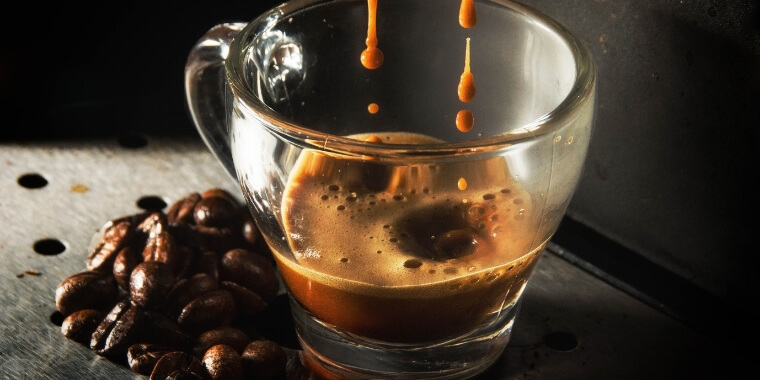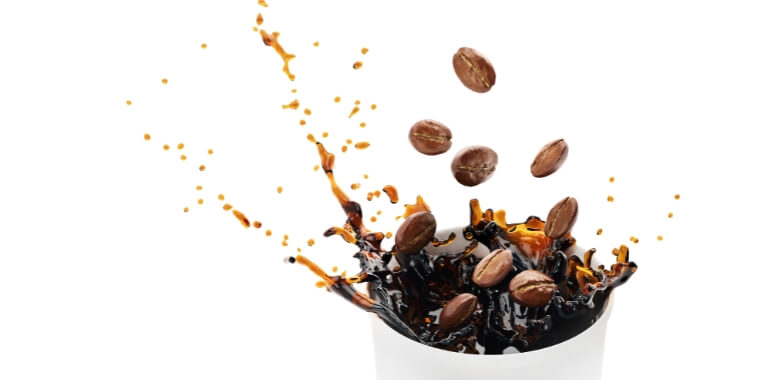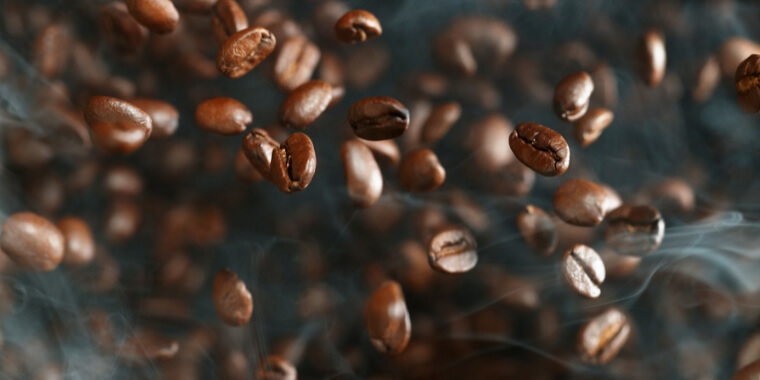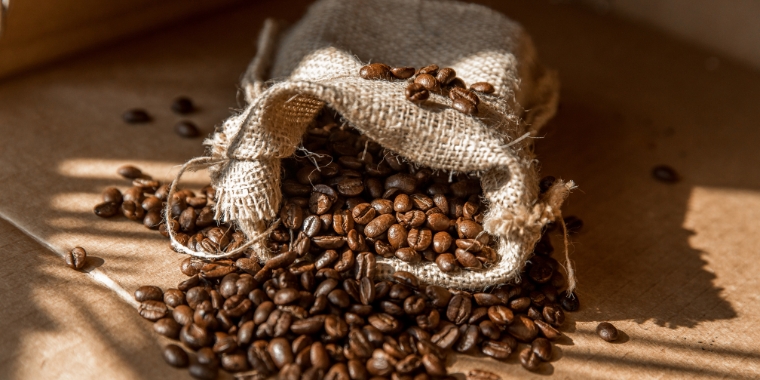If you were ever wondering how long does espresso shot lasts before it loses its flavor I’m here to help you out.
In this article, I’m going to explore all the dirty details of espresso shelf-life and give you some tips on how to keep your espresso tasting fresh and flavorful for longer.
Now, I know you’re busy, so here’s the short answer in you are in a rush:
Freshly brewed espresso is good for 20-30 minutes at room temperature, and usually around 24-72 hours when stored in the fridge.
But wait, there’s more! Some studies have even shown that you can keep your espresso fresh for up to 20 days.
Made you curious? Then let’s dive in!

Why Do Espresso Shots Expire?
The once-velvety shot has turned bitter and stale, leaving a bad taste in your mouth. Can you relate to this? I can!
What happened? It’s all thanks to the sneaky oxygen molecules in the air that start to react with the precious compounds in your espresso, like the oils and aromas that give it that unique flavor.
This reaction is called oxidation, and it’s the culprit behind that “off” taste you get when you leave your espresso exposed to the elements.
But that’s not all – if you leave your brewed coffee to sit for too long, the pH level can rise and make it taste even more bitter and even cause heartburn. Yikes!
So what can you do to keep your espresso tasting fresh and delicious? Minimize its exposure to oxygen! I will cover this topic more deeply in one of the sections below, but I airtight container sounds like a solution for now right?
And, if possible, don’t forget to consume it within a reasonable time frame to ensure optimal taste and freshness.
Summary
When espresso is exposed to air, it reacts with oxygen molecules and causes oxidation, leading to a stale taste. Leaving brewed coffee for too long can make espresso expire which results in a bitter taste and cause heartburn.
How Long Is Espresso Good For?

First things first – let’s have a look at what happens to your shot after it’s freshly brewed.
Generally, espresso starts to lose its taste and freshness within minutes of being brewed.
The crema begins to dissipate quickly after brewing. This can cause the flavors of the espresso to change and become less pronounced.
Additionally, Science.org states that the aromatic compounds that give espresso its rich aroma also start to evaporate soon after brewing.
What’s The Shelf Life of Espresso At Room Temperature?
I’ve learned a thing or two about the fickle nature of espresso freshness.
You see, the moment your espresso shot hits the air, it starts to lose its freshness and flavor faster than a toupee in a hurricane. It’s like a ticking time bomb of deliciousness, waiting to explode in your mouth before it’s too late.
But don’t despair. There is a general rule of thumb when it comes to how long you can keep brewed espresso at room temperature before it starts to go bad. And that rule is this: consume it within 20-30 minutes of brewing to enjoy its full flavor and aroma.
After that, well, let’s just say it’s like trying to revive a dead fish – not a pleasant experience for anyone involved. Your shot taste can become sour, bitter, or just plain off.
Summary
The general rule of thumb for how long brewed espresso lasts at room temperature is 20-30 minutes. After that, the taste can become sour, bitter, or unpleasant.
How Long Does Espresso Last In The Fridge?
I know that the struggle to keep your espresso fresh and tasty can feel like trying to tame a wild stallion – it’s a wild ride with a lot of ups and downs.
Fortunately, I’m here to share a little secret with you: storing your brewed espresso in the fridge can actually help extend its shelf life compared to leaving it at room temperature.
So, how long is espresso good in the fridge? Through my own personal trials and errors (and trust me, there have been many), I’ve found that brewed espresso stored in an airtight container in the fridge can taste its best for 24-72 hours.
But wait, there’s more! According to a study by Florian Mayer and Werner Grosch, refrigerating your espresso can actually preserve its flavor and aroma for up to 15 days for coffee brews stored at 4°C with oxygen, and up to 20 days for coffee brews stored at 4°C without oxygen.
It’s like a miracle, right? Well, sort of. Storing your espresso at a lower temperature slows down the oxidation process, which helps keep those precious flavors and aromas intact.
But here’s the catch: storing your coffee in the fridge can also cause it to absorb odors from other foods and flavors.
So, to ensure the best taste and quality, it’s crucial to store your espresso in an airtight container and consume it within a day or two. It’s like a race against time, but trust me – the finish line is worth it.
Summary
How long can you refrigerate espresso? Storing brewed espresso in the fridge can extend its shelf life for up to 15-20 days. But, it’s crucial to keep it in an airtight container and consume it within a day or two for the best taste and quality.
How To Tell If Espresso Has Gone Bad?

So, how do you know if your espresso has gone bad? Well, buckle up, because I’m about to drop some knowledge bombs on you.
Sour taste
First up, if your espresso tastes sour or overly acidic, it’s likely that it has gone bad. You know, like when you mix vinegar and baking soda and it explodes everywhere? Yeah, that’s the kind of chaos your taste buds are experiencing when your espresso goes bad.
Aroma
Another sign that your espresso has gone bad is a stale or musty aroma. Technically It means that it is oxidizing for too long but in practice, it’s like trying to smell a wet dog – not exactly what you want to experience when you’re trying to savor the rich aroma of your shot.
Off-color
Last but not least, if the color of your espresso looks off or unusual, it could be a sign that it has gone bad too. It’s like trying to sail a ship through a thick fog – you’re not sure where you’re going, but you know it’s not good.
Summary
To tell if your espresso has gone bad, there are a few things to look out for. If it tastes sour, has a stale aroma, or has an unusual color, it’s likely that you shouldn’t drink it.
What Are The Factors That Can Affect Espresso Shelf Life?

Have you ever wondered what affects the shelf life of your coffee? Well, buckle up, because I’m about to take you on a wild ride through the world of coffee chemistry.
Beans
First up, let’s talk about the beans themselves.
The age of your coffee beans can have a major impact on their shelf life.
As the beans age, they lose their flavor and aroma, which means your coffee won’t taste as fresh and delicious as it should.
So, make sure you use those beans as quickly as possible after roasting to ensure maximum freshness.
And if you’re not sure when they were roasted, look for the roast date on the bag.
Brewing
Now, let’s talk about brewing. Believe it or not, how you brew your coffee can also impact its shelf life.
It’s like a delicate dance between science and art. If you brew your coffee too hot or too long, it can become bitter and unpleasant much faster, which means your coffee won’t last as long.
So, make sure you’re brewing your espresso correctly to ensure the best flavor and quality.
Storage
Last but not least, let’s talk about storage. This is where things get serious – exposure to air, light, and moisture can all cause your coffee to go stale more quickly than you can say “caffeine fix”.
It’s like a race against time to keep your coffee fresh and tasty.
That’s why I’ve prepared some best practices for storing your espresso in the next chapter. Stay tuned – the adventure is just beginning.
Summary
The age of coffee beans, the brewing process, and storage conditions are the factors that can affect espresso’s shelf life. Using fresh beans, brewing correctly, and proper storage in an airtight container away from air, light, and moisture are the best practices to keep your coffee fresh and tasty.
How to Store Brewed Espresso? (Tips for Keeping It In a Fridge)

Let’s talk about one of the most important aspects of enjoying a delicious shot of espresso – proper storage aka how to preserve espresso shots so they last longer.
First things first – let’s talk about the before-brewing rituals. You know, the things that can affect the shelf life of your espresso before it’s even done.
Tip 1: Clean and maintain your espresso equipment.
It’s like giving your tools a spa day – you want them to be clean and fresh for the best possible performance. So, make sure you’re regularly cleaning your portafilter, grinder, and other equipment to prevent any buildup that could affect the taste of your espresso.
Tip 2: Use fresh espresso beans for a longer shelf life.
This is like choosing the perfect outfit for the big performance – it sets the tone for everything else.
Always use fresh beans for brewing and storing, as older beans can cause your espresso to taste stale or off.
If you’re not sure how fresh your beans are, check the roast date on the packaging or ask your local coffee shop for recommendations.
Tip 3: Invest in an airtight container.
Think of it as creating a safe haven for your precious shot of espresso. You need to store it in an airtight container to prevent exposure to air, light, and moisture – the three enemies of good espresso.
A mason jar or a reusable container with a good seal will do the trick!
Summary
Proper storage is crucial to enjoying a delicious shot of espresso longer. It’s also important what you do before brewing: clean your equipment, use fresh beans, and finally store in an airtight container to prevent exposure to air, light, and moisture.
My Final Thoughts
It’s been a wild ride, folks, but we made it. We unlocked all the mysteries of the espresso shelf life.
We learned that espresso is a delicate creature that needs to be treated with care – exposure to air, light, and moisture can cause it to lose its flavor and aroma in a blink of an eye.
And let’s not forget about the dreaded oxidation process – it’s like a ticking time bomb for your shot.
But fear not because we’ve also learned how to extend the shelf life of our espresso.
From using fresh beans and properly cleaning our equipment, to storing our precious shots in an airtight container – we’ve got this.
In the end, the journey to understanding espresso shelf life has taught us one valuable lesson – always treat your coffee with love and respect. After all, it’s what gets us through the day (and sometimes the night).

